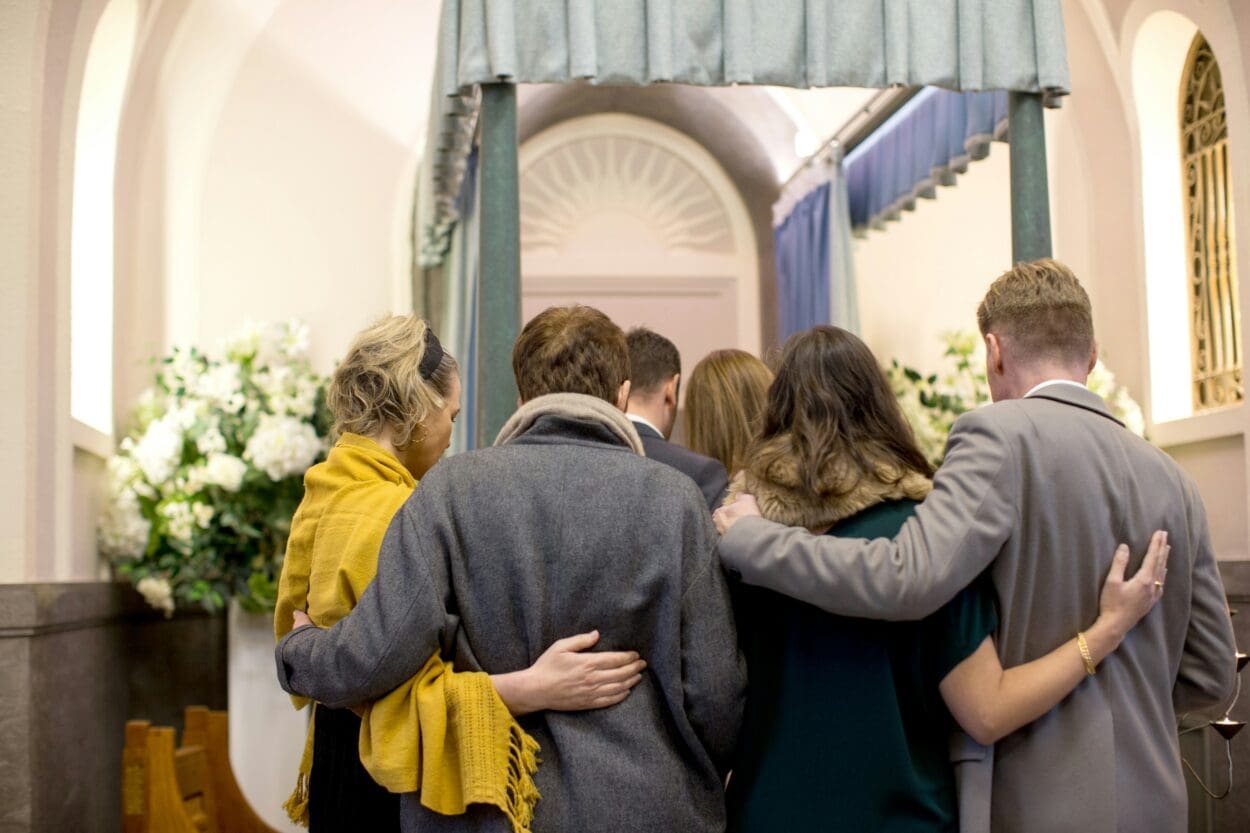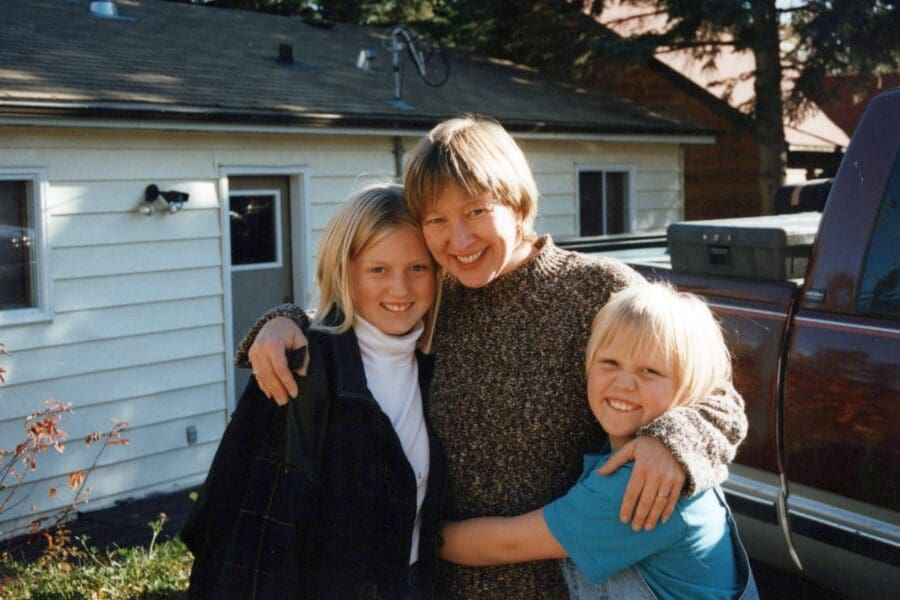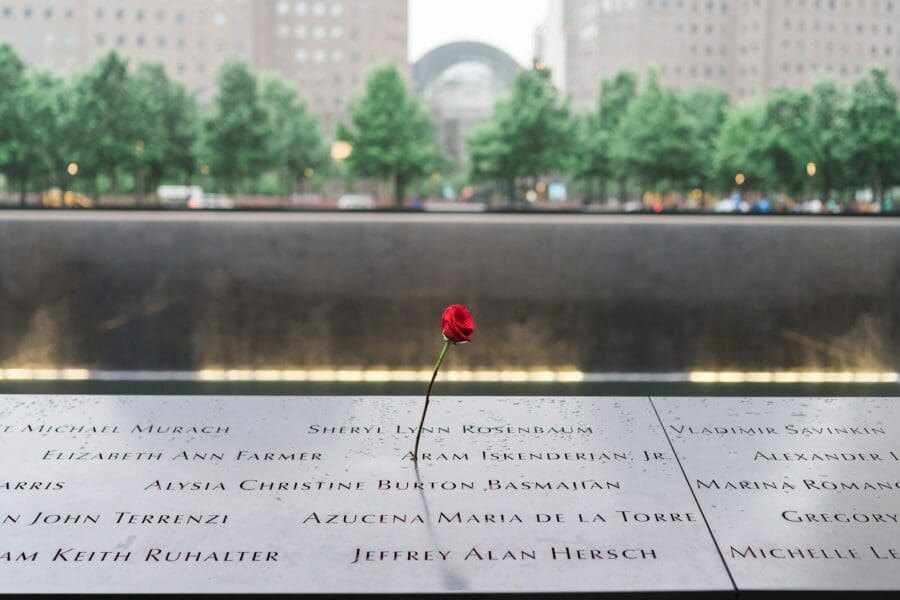After she died in 2018, the family of Aretha Franklin planned three public viewings before her funeral. She donned a different, but still fabulous, outfit at each viewing. When speaking about the decision to have her go out in style, her niece, Sabrina Owens, said, “She gave the best, she expected the best and she would want her fans to have the best.”
Throughout time, this sentiment has rang true. From Israeli funerals dating back 120,000 years to the rituals modern society implements today, burials and memorial services have always been a sign of respect. That’s why, dating as far back as the Middle Paleolithic period, the deceased were buried with sentimental objects and laid to rest in comfortable positions.
The desire to celebrate one’s life is part of the shared human experience – and there’s nothing more human than experiencing profound loss and grief. Though funerals and memorial services are designed to pay respect and celebrate the life of the one who passed, they are also fundamental to the grieving process.
How Funerals and Memorial Services Help People Cope With Loss
As previously mentioned, a funeral isn’t just a ceremony. It’s a ritual – a ritual that can include various elements and be held in various settings based on the decedent’s culture, interests, and personality. Despite these differences, funerals, regardless of what they include and where they take place, play an integral role in processing profound loss.
According to Christy Denckla, a clinical psychologist who specializes in grief, funerals are “…fundamental to how we mourn, how we grieve, how we reinforce social ties, to how we expand the social safety net in times of vulnerability and loss. And more fundamentally, they reflect what it means for us to be human and for us to love and for us to connect.”
Here are a few other ways funerals and memorial services help people cope with significant loss:
They Help You Acknowledge the Loss
A loss of any kind is sudden, even when it might have been something you and your loved ones have been preparing for. Though grief will eventually strike, the first emotion people face following the death of a loved one is shock. MyMDCares refers to this as our “…protective blanket.” Per MyMDCares, shock (which is also called our trauma membrane) is what “…allows us to function in our lives without feeling severe pain.” In the days following a death, there’s not too much time for downtime, as most of your time is spent notifying friends and family, making funeral arrangements, picking out flowers, getting prayer/remembrance cards, finding wills, and writing a eulogy.
It’s because of this preparation that the funeral is often the first time loved ones can acknowledge their loss and let those emotions out. Simply put, holding a service helps those left behind acknowledge the gravitas of the loss; it also provides a step toward the next phase in the grieving process.
They Provide a Safe, Collective Space for Mourning
Because the funeral often provides the first time mourners can take a second to breathe and really acknowledge their loss, it also comes as no surprise that it becomes a safe, collective space for mourning.
While a funeral or memorial service may serve as a celebration of life, it also serves as the final goodbye. With that finality comes deep sadness, not just for the direct family members but for everyone gathered together to pay their respects. With such collective sadness, attendees are free to cry, share stories, and even make a few jokes that bring temporary joy in a judgment-free zone.
The funeral and/or memorial service is designed to honor your loved one, but also provide a safe space where you and your friends/relatives can come together and release every emotion you feel at that time and support one another.
They Provide Opportunities To Take Control Back
After the loss of a loved one, especially in the days leading up to the funeral, it can feel like your entire world is out of control – and that’s because it is. Though death is natural, there’s nothing natural about having to lose someone you love and go through life without them. That’s why when people who recently suffered a loss are told to be happy because “their loved one would want it” hurts so much. At the end of the day, if they could harness the ability to be happy…they would.
Simply put, death brings about chaos, and experiencing that chaos can lead to feelings of being out of control. Planning a funeral or memorial service provides an opportunity to take that control back, whether in the form of planning what will be said in the eulogy, what kinds of flowers will be placed on their grave, and what songs you wish to be played. Furthermore, while grief is open-ended, designating a date for the memorial service lets you see the light at the end of the tunnel. They represent an end date to this awful week.
They Allow Us to Validate The Legacy Our Loved Ones Left Behind
Regardless of the relationship shared in life, our loved ones leave a lasting impact on those left behind. While it may be a cliche, a funeral is just as much about grieving a loss as it is about celebrating the decedent’s life and legacy.
These services, songs, and rituals provide ample opportunities for attendees to share how the deceased affected them. For the next of kin, hearing stories about how much their mother, father, spouse, or sibling meant to them can bring joy in a difficult time.
They Help Usher the Healing Process
Though grief won’t end with the funeral (it’s something that stays with you but evolves over time), the memorial service serves as the first big step into the healing process and what will become your healing journey.
There are a few reasons for this. First, because a funeral is where you say goodbye, it will often offer closure to everyone there. This is especially true for those who were notified of the death and not with their loved one when the death occurred. Oftentimes, the funeral is the first time they’ve seen their loved one since they passed, which can provide immense closure, though also, a lot of sadness.
Second, the funeral offers a place for your emotions to come out. Bottling your emotions and ignoring them, while it may be considered the safer option, can harm your mental health, leading to depression, isolation, and anxiety. Releasing your emotions is integral to every healing journey because it allows you to confront them. As many mental health experts have said, sometimes the only way out is through.
Funerals Are Integral to Healing While Grieving
Though it may be difficult to hear, the grief that comes from losing a loved one isn’t bound to go away anytime soon. After all, grief is just a form of love – and the love you hold for someone doesn’t go away just because they pass away. Funerals are designed for the deceased just as much as they are for the living because they provide a space for you to share that love and receive just as much of it back.
Understanding the important role that funerals and memorial services play in grief is important because you may be thinking of going without it, whether that’s due to your loved one’s wishes or because you think it will hurt too much. However, they are integral to giving the people left behind a place to grieve, a place to reflect, and a place to start healing as they navigate a new normal.

Courtney Dercqu is a Florida-based writer. Having chronicled her own journey of loss after losing both of her parents, she was drawn to Embrace Your Grief to help others through the loss, triumph, and confusion that the grieving process can bring. Not only does she hope her words help others, but being a part of a community that breaks the stigma of grief has made her feel less alone.








Leave a Comment